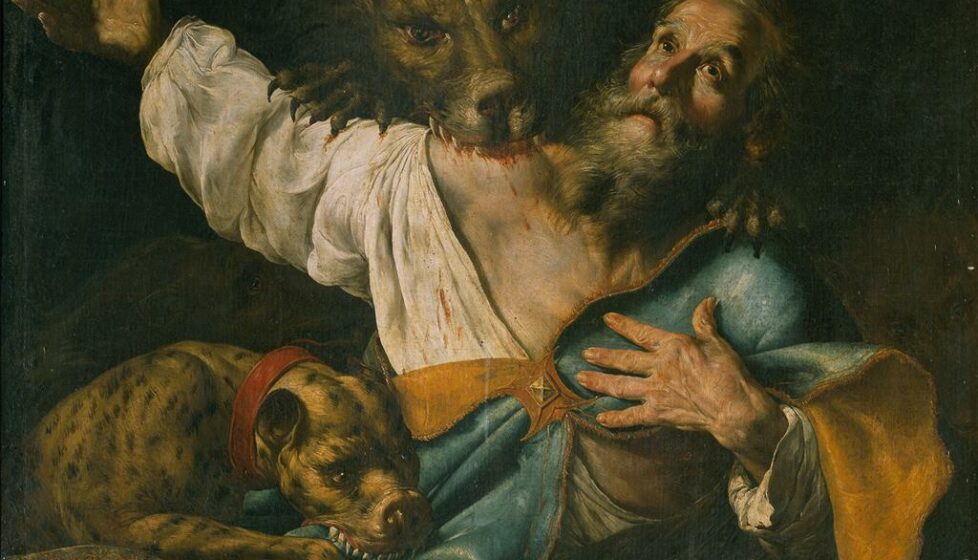Stories of Christian Martyrs: Mary Dyer
Massachusetts

Convinced that the intolerant law of Massachusetts Colony
banishing Quakers violated God’s law, Mary Dyer would not
stay quiet or stay away. Dyer was a Quaker, and Quakers
believed that God could communicate directly to us and that salvation
could be assured. This was considered heresy by the Puritans in Massachusetts, so they banished her from the colony.
Dyer challenged that law with a persistence that finally led authorities to a critical decision: Agree with Dyer and change the social structure
of the colony, or silence her. Mary Dyer died on the gallows on June 1,
1660, affirming her stand against the government that persecuted her
Quaker faith. “Nay, man,” she said at the last, “I am not now to repent.”
Dyer had other alternatives. For one, she was married to a respected
colonial official, William Dyer, who more than once had rescued her
from a Massachusetts jail through his political connections. He too was
a Quaker but less militant than she, who never dodged a fight over religious freedom, especially when her “inner light”—God’s voice to the
soul—bade her confront the secular powers.
For another, Dyer had the testy patience of Massachusetts Governor
John Endicott on her side. When her fellow Quaker “lawbreakers,” William Robinson and Marmaduke Stephenson, were hanged in 1658, Dyer
stood right behind them, awaiting the same fate. To her complete surprise, she received a last-minute reprieve and was ordered never to return.
She left under guard, with her husband’s promise that she would comply
with the Massachusetts edict of banishment.

Finally, Dyer had a mission to Native Americans on Shelter Island,
teaching and converting them to the Quaker faith. Had she been content with her work and obedient to the law, she might have seen the
last of her eight children reach adulthood. But she was neither content
nor submissive.
In April 1660, Dyer returned to Boston, led by her conscience and
fully aware of her danger. She didn’t tell her husband, who nonetheless
wrote a moving letter to Governor Endicott asking again for mercy
toward his driven wife. This time, however, the stakes were too high.
At issue was more than Quaker nonconformity. To survive in the
New World, settlers had learned to build strong communities. If food
security, weather, the forest, disease, and hostile Indians were not
enough, tough-souled London businessmen had given up on the colonies,
leaving them to their own wits and devices. Religious nonconformity
was a further strain on the social system, and defiance of law was finally
a capital offense. Who could waste precious resources maintaining a
prison system? Dyer wanted religious freedom; Massachusetts wanted
order and survival. Leaders such as Roger Williams in Rhode Island had
found middle ground, granting wider freedom of expression in and
around the city of Providence. Dyer and her husband lived there for a
while, but she was not a person to take refuge there.
Thus, on May 31, 1660, the General Court of Massachusetts summoned Mary Dyer and convicted her of willful violation of the banishment decree. Replied she, “I came in obedience to the will of God,
desiring you to repeal your unrighteous laws, and that is my work now
and earnest request.”
The next morning she was escorted to the gallows, a troop of drummers in front and behind to keep Dyer from preaching to the gathering
crowd. She left behind engraved on the wall of her jail cell: “My Life not
Availeth Me / In comparison to the Liberty of the Truth.”
In 1959, on the 300th anniversary of her death sentence, the Massachusetts General Court decreed that a bronze statue of Mary Dyer be erected in her memory on the grounds of the State House in Boston,
recognizing the truth and social value of her “earnest request.”
This story is an excerpt from Foxe: Voices of the Martyrs. You can get your own copy free with any donation to The Voice of the Martyrs.

